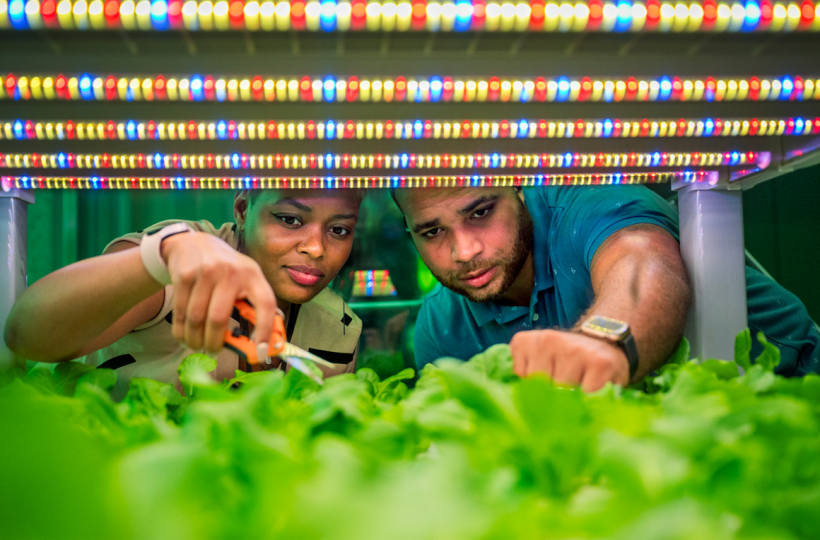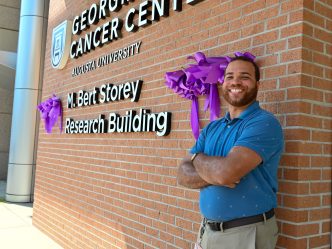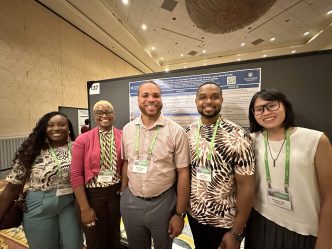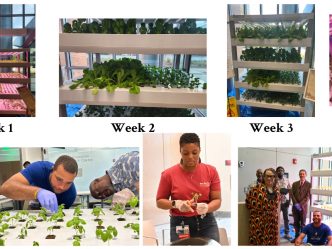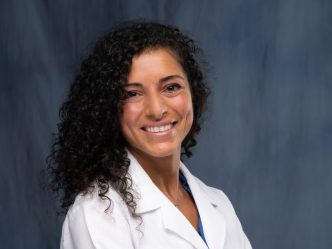Malcolm Bevel, PhD, a cancer epidemiologist at the Georgia Cancer Center (GCC), talks about his passion for reducing racial and socioeconomic disparities in cancer outcomes, as well as what excites him about working for the GCC.
“The field of epidemiology is essentially population health—looking at the main contributing factors associated with different diseases and outcomes, and any other confounding factors that might distort the association between exposures and diseases,” Bevel said when talking about the work he conducts at Augusta University’s Georgia Cancer Center.
Bevel got into this line of research when he was an undergraduate student at Prairie View A&M University in Texas, where he started looking at health disparity trends. He then began to do more research and was accepted into the annual Biomedical Research Conference for Minority Students where he discovered Meharry Medical College and their Master of Science and Public Health (MSPH) program.
At Meharry Medical College, his focus was social determinants of health and chronic disease, which included hypertension, diabetes, and cancer as well. His thesis topic was examining the association between hormone replacement therapy and postmenopausal breast cancer among Hispanic women on the Texas-Mexico border.
Bevel graduated with his PhD in Epidemiology from the University of South Carolina, where his dissertation focused on the potential association between food deserts, swamps, and inflammatory levels among African American women. He went on to do two postdoctoral research associate assignments, one at the University of Duke School of Medicine, the other at University of North Carolina, Chapel Hill. While he was at Duke, he met Justin Moore, PhD, who was Bevel’s mentor in his postdoc.
Moore was at AU’s Division of Epidemiology and then transitioned over to the GCC where he recruited Bevel because the Cancer Prevention, Control, and Population Health team was expanding.
The Cancer Prevention, Control, Population, and Health team strives to promote the importance of cancer prevention, early detection, and regular screenings to local communities that have experienced cancer outcomes tied to racial and socioeconomic disparities.
“If it wasn’t for Dr. Justin Moore, I wouldn’t be here at the Georgia Cancer Center.”
Bevel believes the key to establishing productive working relationships is effective, open, and productive communication.
“In conducting my research, I have enjoyed meeting the people and community members, hearing about what they want and need, and I also appreciate their willingness to participate in interviews,” says Bevel.
When looking back on his research, Bevel hopes that he will have made an impact in terms of preventing cancer, reducing the risk of obesity-related cancers, and impacting policy that protects civilians from certain systemic oppression oppressors such as gentrification and redlining.
“My research into food swamps and food deserts revealed a lack of healthy food options in certain areas, and how that can affect certain populations and communities. I hope to bring community gardens to the area of Augusta and beyond.”
Since starting his Modularized Vertical Hydroponic Garden, or micro-farm for short, Bevel has been able to have multiple harvests of fresh basil, lettuce, and other plants. He has donated his harvests to local churches in the area to assist with their own food programs. He hopes that these types of gardens can be reproduced in various communities to combat poor food options.
Bevel has big plans coming up in regard to his research.
“I will be working with our Augusta University Medical College of Georgia-Georgia Southern Partnership campus in Savannah, Georgia, and some of the community and farming partnerships on establishing micro-farms in that area.”
If you would like to learn more about Bevel’s research, visit his page here. To learn about his latest project, check out the video down below or click to read the article here.
 Augusta University
Augusta University
